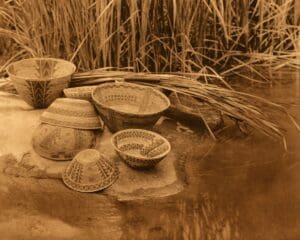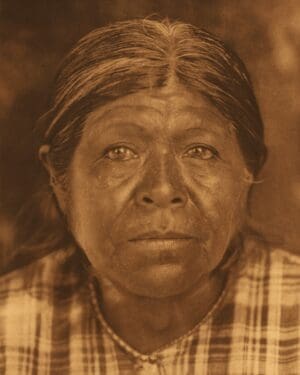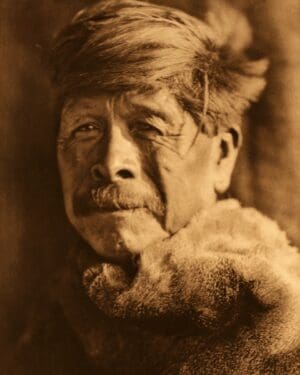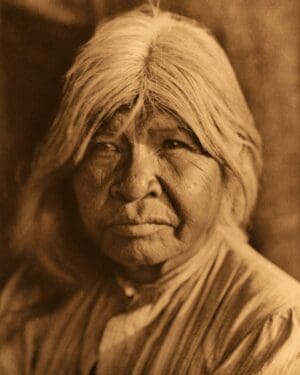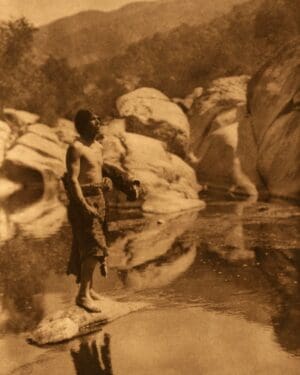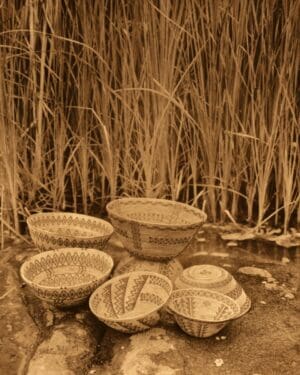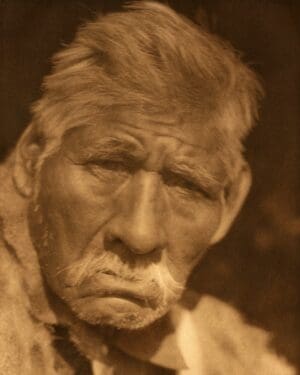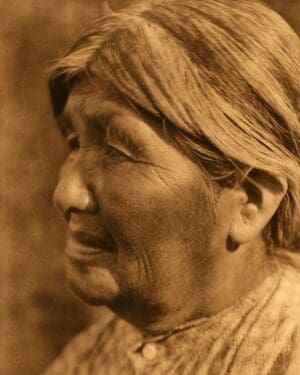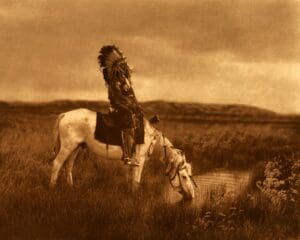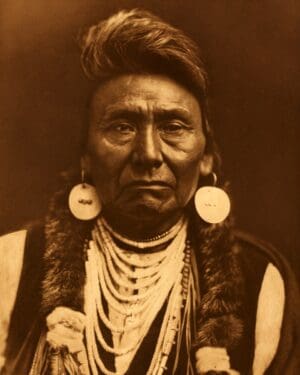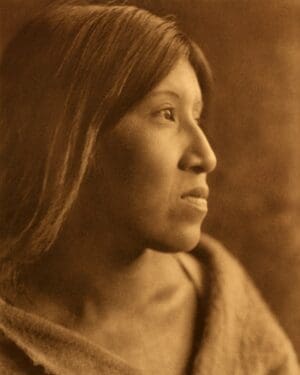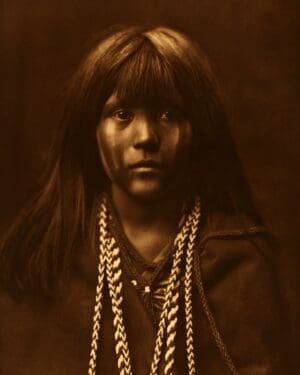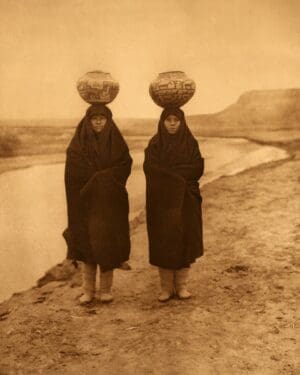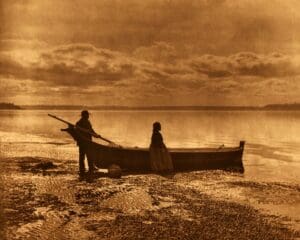Yokuts Native Americans
Yokuts Indian Photos by Edward S. Curtis
Tribal Summary
Dress
Yokuts Men, and a great many women, wore only a loin-cloth; other women had double aprons of shredded willow-bark, tules, or sedge, more rarely of skin. In cold weather both sexes used robes made of strips of the skins of rabbits, coyotes, or waterfowl. Moccasins were rare. Men and women drew the hair together at the back of the head and tied it in a bunch or a sheaf with a cord, or passed a head-band from the base of the cranium up over the top. In the north women generally tattooed the chin, and some men the chest and forearms; and both sexes occasionally wore a bit of bird-bone, or, rarely, a cylinder of clam-shell in an orifice in the lobe of each ear and the septum of the nose. In the south, however, they did not tattoo, and ornaments were long, slender pendants of clam-shell worn about the neck, in the lobes of the ears, and the septum.
Dwelling
Throughout the hill country in the north the Yokuts house was of the Miwok type, a conical, grass-thatched structure over an excavation. In the northern plains the thatch was of tules. In the south the dwelling was an elongate s1ructure, the poles of the framework meeting at the line of the ridge and the covering consisting of tule mats. The interior was partitioned off with mats into many rooms, each with its individual entrance and fire. Generally one such structure housed the entire population of a village. Sweat-houses were of the semi-subterranean, earth-covered type.
Food
In the hill country acorns and other nuts, seeds of grasses, sage, and other small plants, fruits, and various roots and green stalks were important articles of food. Many of the valley dwellers were far removed from the oaks and other food-producing trees and shrubs, and depended largely on tule-roots, small seeds, and fish. In the region of Tulare lake large quantities of fish were dried. In winter the San Joaquin plain swarmed with deer, antelope, and elk, but the Yokuts were not adept in hunting. The usual method was to drive the animals past an ambush. Rabbits, ground-squirrels, and small birds were of more importance than the ruminants.
Showing 1–9 of 11 results
-
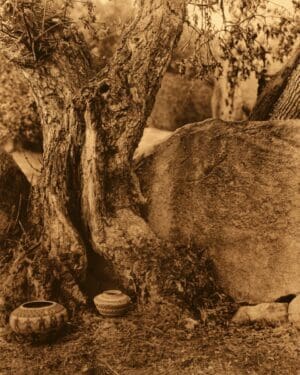
Art as old as the tree – southern Yokuts
Price range: $26.25 through $172.50 -

By the pool – Tule River Reservation
Price range: $26.25 through $172.50 -

Chukchansi matron
Price range: $26.25 through $172.50 -

Chukchansi Yokuts
Price range: $26.25 through $172.50 -

Chukchansi Yokuts type
Price range: $26.25 through $172.50 -

Quiet waters – Tule River Reservation
Price range: $26.25 through $172.50 -

Rattlesnake design in Yokuts basketry
Price range: $26.25 through $172.50 -

Yauelmani Yokuts
Price range: $26.25 through $172.50 -

Yaundanchi Yokuts woman
Price range: $26.25 through $172.50

